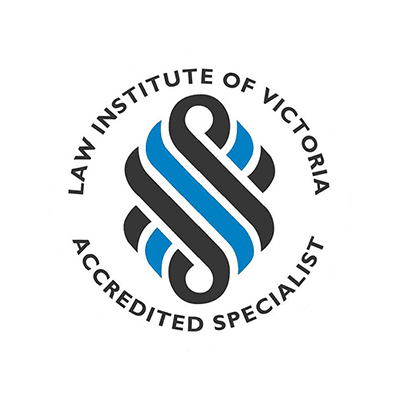Extreme makeover for Powers of Attorney
THE NEW FINANCIAL ENDURING POWERS OF ATTORNEY
New laws for Financial Enduring Powers of Attorney have changed the obligations of the Donor i.e. person making the Power of Attorney and the Attorney. The Donor can appoint an Attorney to make financial and legal decisions in his best interests when he cannot do it himself, which continues after the Donor loses the legal capacity to make decisions.
The Donor should have confidence in the Attorney’s competence to, deal with decisions and be capable of keeping accurate records. This underpins the relationship and how he puts the Power of Attorney into legal effect are the reasons why the Donor must take legal advice before making a Power of Attorney. The new laws change the nature of the Power of Attorney, its terms and conditions, legal execution and the legal responsibilities of the Donor, Attorney, Witnesses, and the Legal Practitioners. One can no longer buy and fill a form; the laws require a detailed process to prepare and execute the Power of Attorney.
The Donor must have legal capacity to understand the nature and effect of the Power of Attorney and make an informed decision, without pressure from anyone after weighing up all the benefits and issues that matter to him. This means that:
a) The Donor can specify conditions, limitations, or instructions about exercising the Power of Attorney
b) Time frames can be set as to when the power is exercisable
c) Once the power is exercisable, the Attorney can do anything subject to any limitations, or restrictions
d) The Donor can, at any time whilst having legal capacity, revoke the Power of Attorney
e) The Power of Attorney continues even if the Donor subsequently ceases to have legal capacity
APPOINTING ATTORNEYS
The Donor can appoint sole, joint, joint & several or an alternative Attorney; each style has different obligations to each other and depends on the Donor’s circumstances and objectives.
LIMITATIONS OR RESTRICTIONS ON THE ATTORNEY
The Donor can specify how the Attorney is to carry out the responsibilities and impose special conditions to apply in the decisions and can include instructions for the Attorney who must act in accordance with those instructions. Once the power to make a decision begins, the Attorney has full control over that decision unless the Donor explicitly limits that power in the document.
Where one has large assets, such as property or shares, one should leave clear instructions for the Attorney on how to deal with, distribute, or dispose of the assets.
LEGAL REQUIREMENTS FOR THE ATTORNEY
The Attorney is taking on serious legal obligations and if he fails to observe them, he is subject to removal, or conviction for an offence, and required to pay compensation. The Attorney must:
a) Produce a summary of receipts and expense, or detailed accounts, which may be subject to an audit. The Attorney must keep accurate records of dealings and transactions made under the power as VCAT, the Court, or the Public Advocate may require production;
b) Keep separate records, where possible. Where there are joint attorneys, by agreement, one attorney can retain a record or account of transactions or dealings
c) Keep his property separate from the Donor’s property unless the Attorney and Donor own the property jointly. If the Donor’s capacity to make decisions is impaired, the Attorney must also get approval from VCAT or the Court for any transactions that have not been authorised in the Power of Attorney
d) Exercise the power given honestly and with reasonable care
e) Immediately comply with a Notice of Revocation or Change
f) Not enter transactions that could or do bring his interests (or those of his relations, business associates or close friends) into conflict with those of the Donor. However, an Attorney can enter such a transaction if it has been authorised in the document or by VCAT or the Court
g) Comply with the terms of the Power of Attorney and any requirement of the Court or VCAT
REVOCATION
As the Attorney’s actions are legally binding, it is imperative for the Donor to immediately notify the Attorney of the Revocation by serving a Notice of Revocation. The Donor’s ability to revoke the Power of Attorney only exists whilst the Donor has legal capacity to make decisions and if the Donor does not have legal capacity, then only the VCAT Guardianship Tribunal can revoke a Power of Attorney if it believes the Attorney is acting improperly, or against the Donor’s best interests. Other legal circumstances that can revoke the Power of Attorney include:
a) Death of either the Donor or Attorney
b) Bankruptcy of either the Donor or Attorney
c) Resignation of the Attorney either by written notice, or permission from the VCAT Guardianship Tribunal
d) Legal incapacity of the Attorney which prevents the Attorney from understanding the nature and foreseeing the effects of a decision, and of communicating that decision
e) If the creation of the Enduring Power of Attorney is inconsistent with a later Enduring Power of Attorney, then the later power overrides the first
LEGAL EXECUTION OF THE ENDURING POWER OF ATTORNEY
One witness must be a Lawyer who can witness a statutory declaration and each witness must sign a certificate stating that the Donor signed freely and voluntarily in the presence of the witness and at the time, the Donor appeared to the witness to have the capacity necessary to make the Power of Attorney. The Attorney must sign and date the Statement of Acceptance agreeing to the documents terms and conditions. The witnesses must:
a) Not be the Donor, or the Attorney
b) Not be a relative of the Donor or the Attorney
c) Sign the Certificate of Witness together in the Donor’s presence
d) At the time of signing, believe the Donor appeared to understand and had sufficient capacity, which is a critical change to the previous requirements.
They must make sure that the Donor understands that he is giving the Attorney the same power that the Donor has, but only in the Donor’s best interests. The witnesses may need to provide information about the Donor’s capacity to understand these matters when giving the power. If the witnesses have doubts about the Donor’s capacity, they should make appropriate inquiries with the consent of the Donor, for example from the Donor’s doctor.
Where possible and if there is some doubt as to the Donor’s capacity at the time of signing the document, then a medical certificate confirming capacity at the time of signing should be obtained by the Donor and attached to the document. If an interpreter is necessary, it is important that the witnesses are satisfied that the document has been explained in a language the Donor understands.
e) Refuse to sign if they are not sure that the Donor understood the nature and effect of the document
The witnesses must ensure that the signature of the Donor is genuine and that the Donor has signed the document freely and voluntarily, without any undue influence or duress. They must certify that the Donor appeared to understand the nature and effect of the document. For example, the Donor should show an understanding of the nature and effect of his estate as far as practicable. This means the witnesses must make allowance for circumstances in which a Donor may not reasonably be expected to have this knowledge, for example, where one member of a domestic relationship has not been responsible or, or involved in decision-making for, their estate during his lifetime.
If the witnesses are in doubt, they should make a written record of the proceedings, and of any questions asked to determine the Donor’s capacity. Otherwise, if the witnesses are not satisfied that the Donor understands the nature and effect of the document or if the Donor appears to be signing the document under duress or undue influence they should refuse to sign the document.
RECOMMENDATION
Never purchase a Power of Attorney form as the new legal requirements impose heavy duties and obligations on each party and without proper advice or preparation, the Power of Attorney will be invalid with costly consequences on every one.
NEED MORE INFORMATION
Behan Legal assists and advises on these important issues. For an appointment, call 03 9646 0344.


